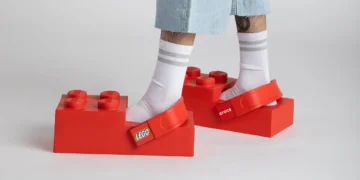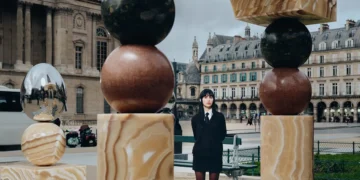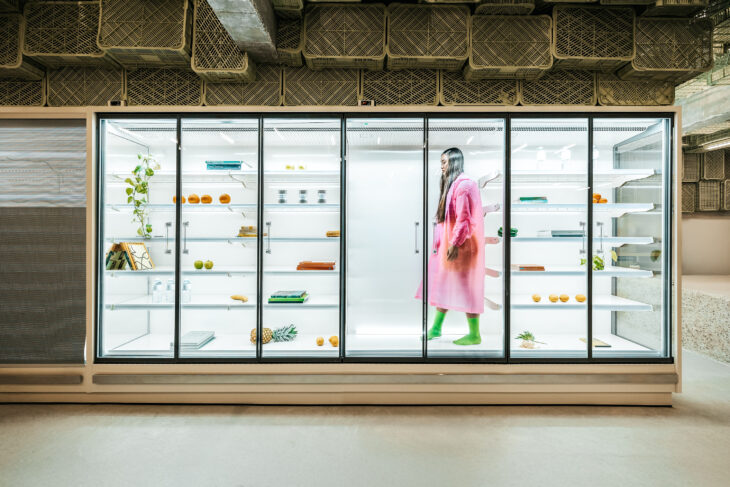
Minimal Studio has found beauty in the most unlikely place, the supermarket. Their project, Plastic Box, transforms Akelarre Supermarket into a brutalist wonder where geometry and grit replace branding and abundance. It’s retail stripped down to its bones, with concrete, steel, and light taking center stage.
INTERIOR DESIGN
The entire space functions like an architectural sculpture. Raw concrete façades form heavy, quiet walls punctuated by dark entryways that swallow daylight before releasing it into a bright, glowing interior. This tension between shadow and illumination becomes the store’s defining rhythm, a spatial choreography of absence and presence.
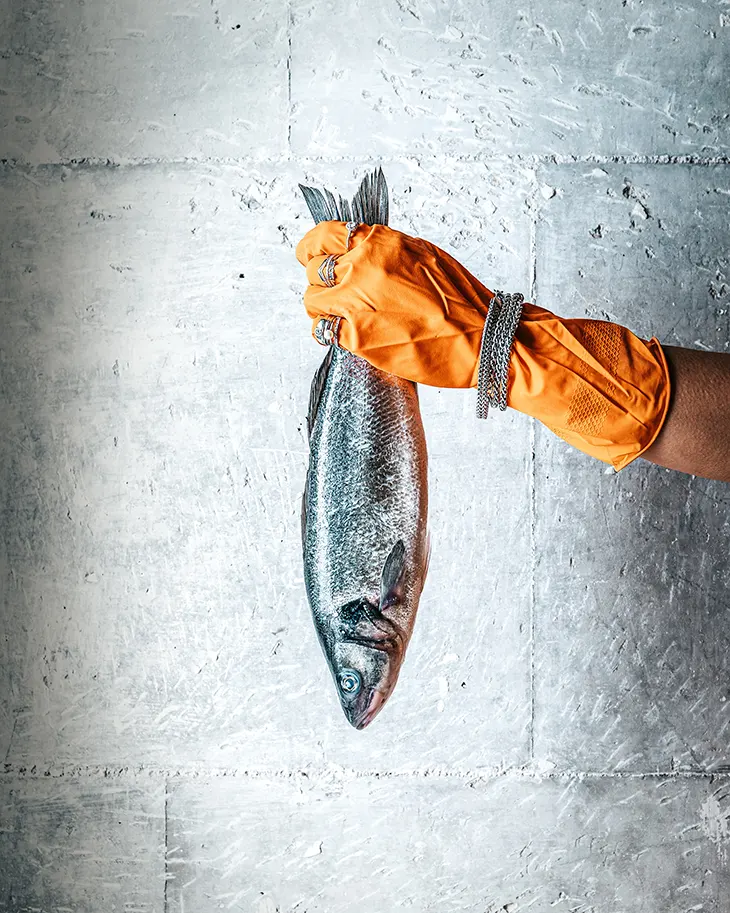
The ceiling, made from more than a thousand recycled plastic crates, acts like a modular grid that organizes everything beneath it. Each crate carries its own secret, LED lighting, ventilation, and even rainwater collection, turning infrastructure into design. It’s brutalism with a conscience, precise yet experimental.
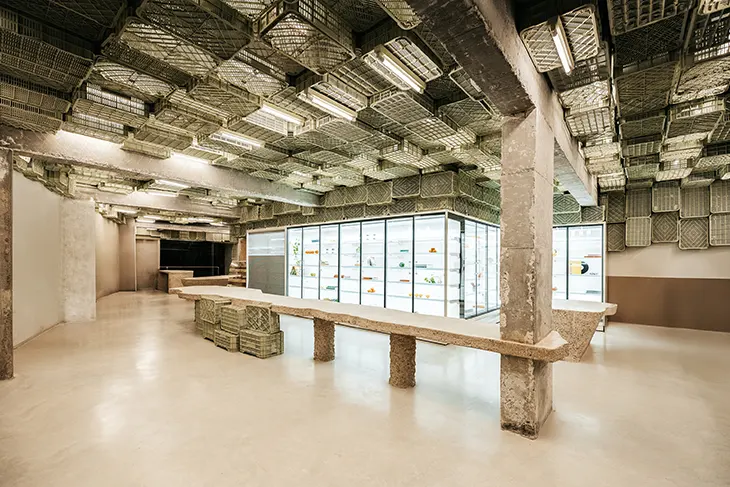
Minimal Studio’s design refuses to disguise its mechanics. Pipes and conduits remain visible, casting clean lines against concrete. The checkout counters resemble monoliths more than furniture, and polished steel shelving doubles as structure. Products become color interruptions against an otherwise disciplined palette.
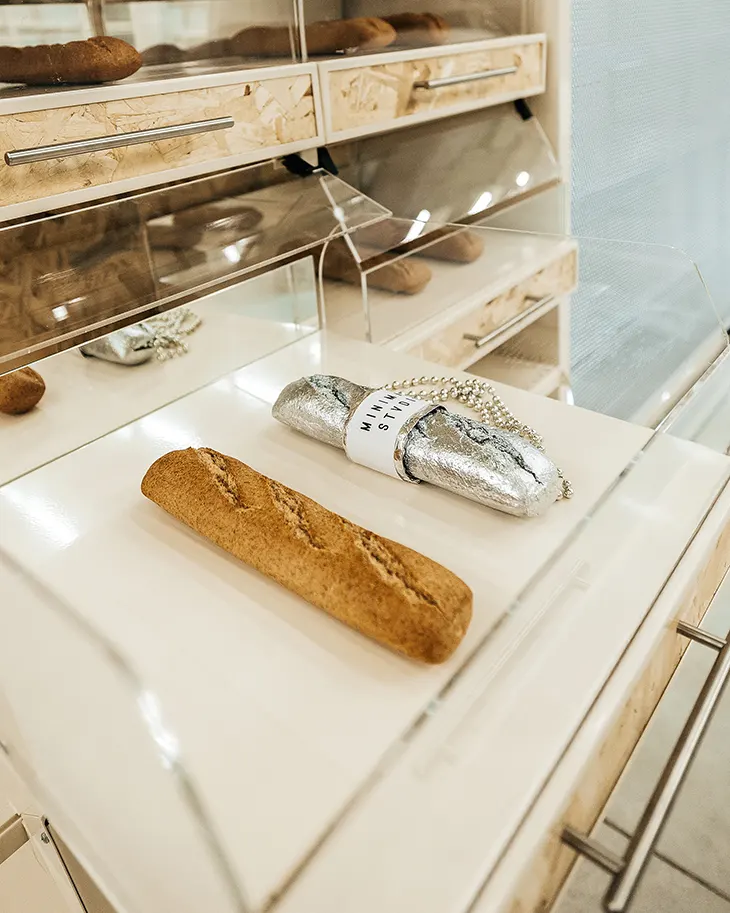
Plastic Box transforms grocery shopping into an act of observation. The space shifts attention from products to structure, from consumption to composition. Geometry and light replace decoration, while concrete and steel define rhythm. Minimal Studio turns an ordinary supermarket into an architectural experiment, quiet, precise, and unexpectedly cinematic.
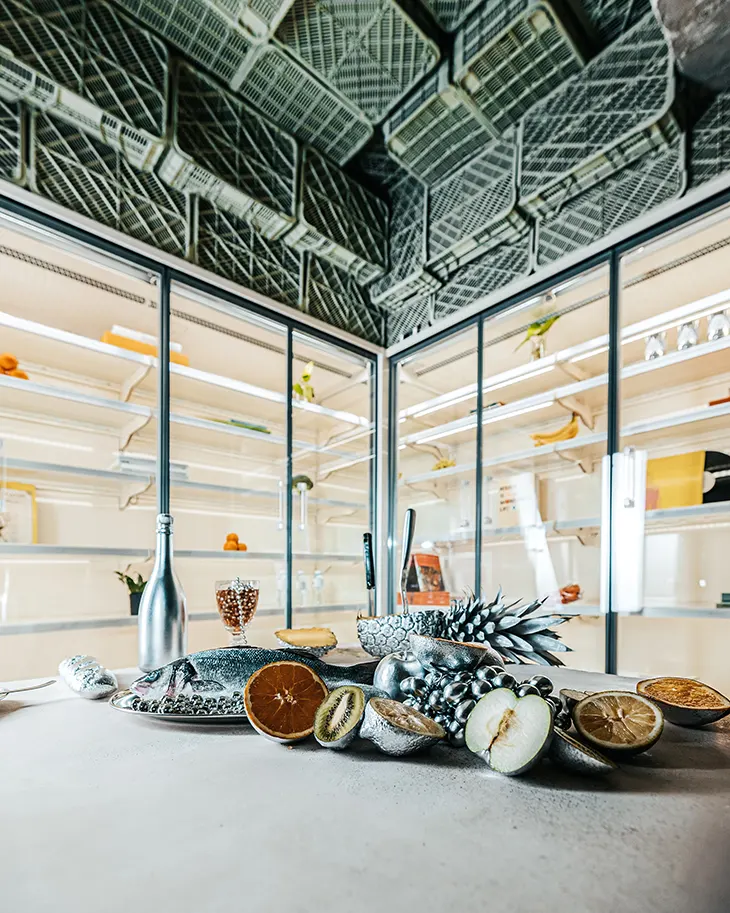
Read the full architectural breakdown on ARCHISCENE.














